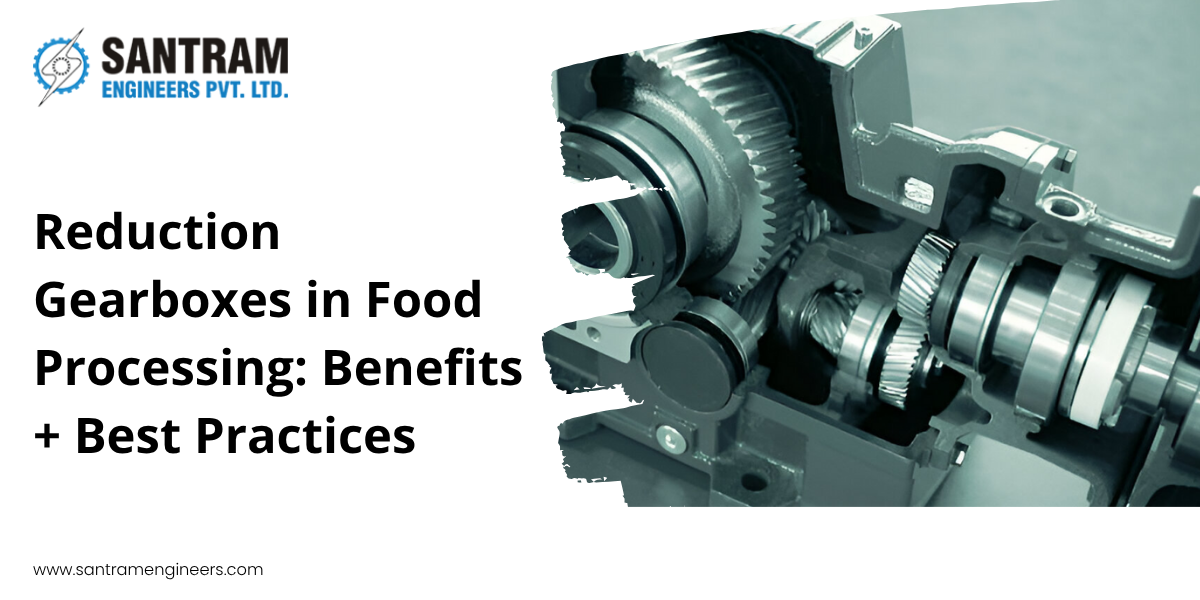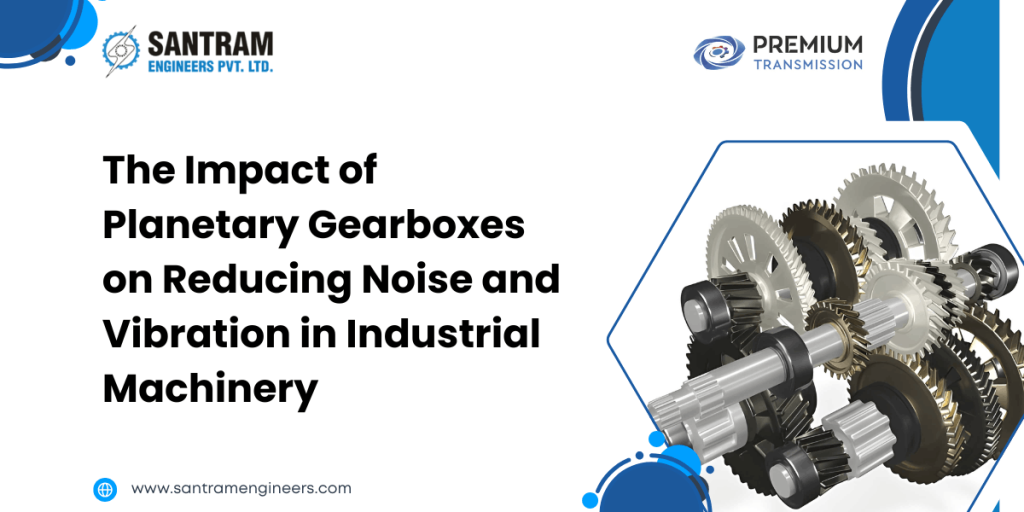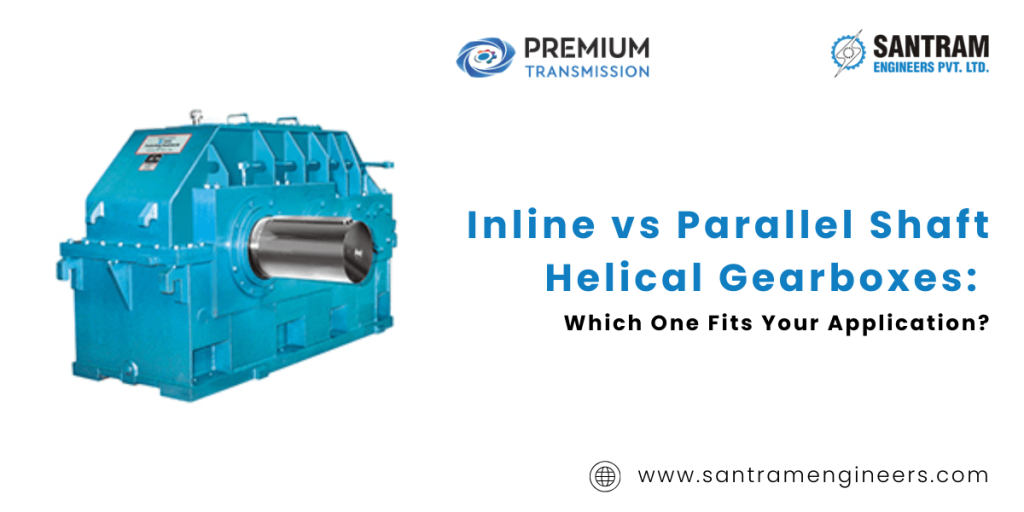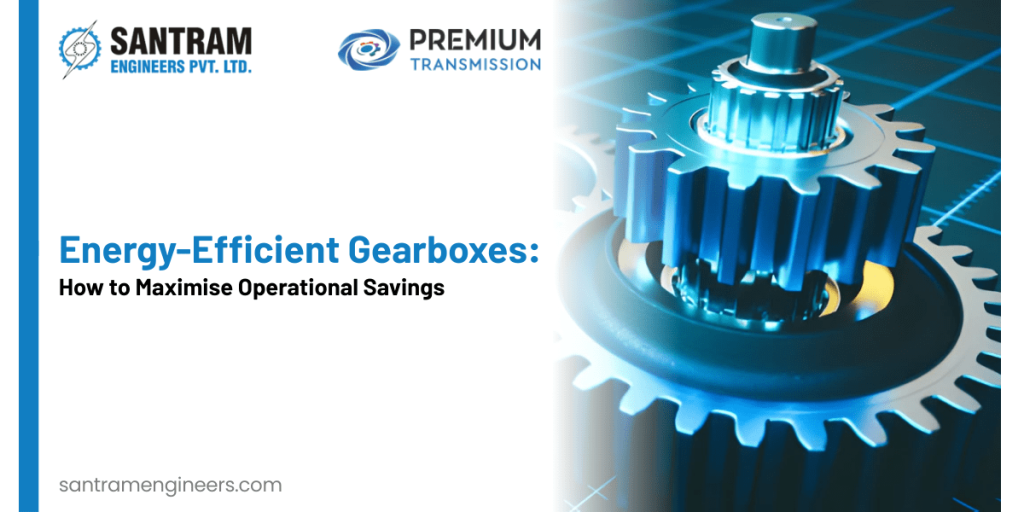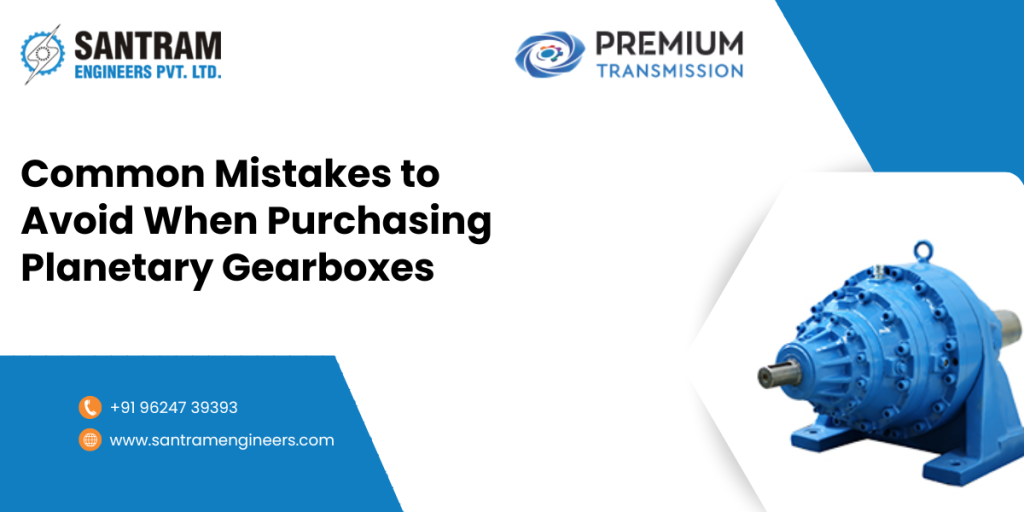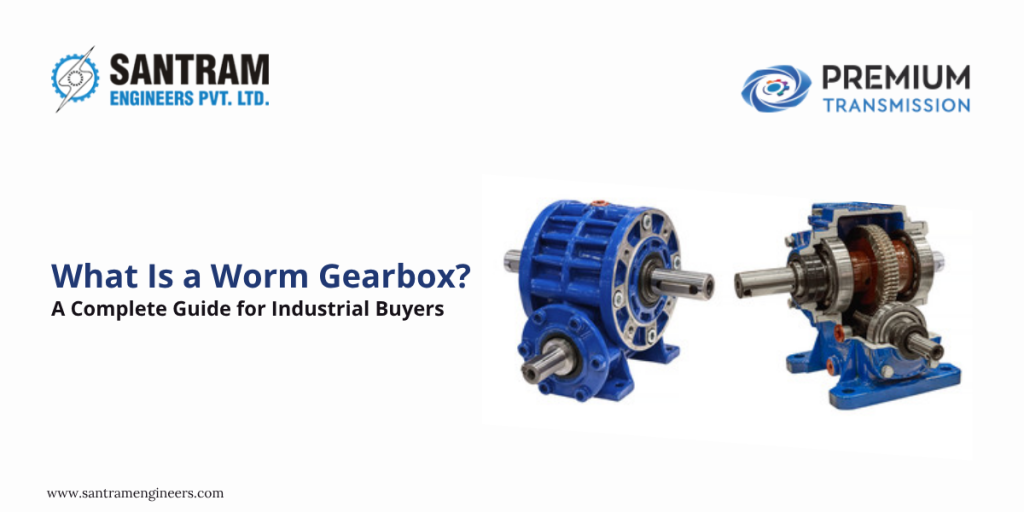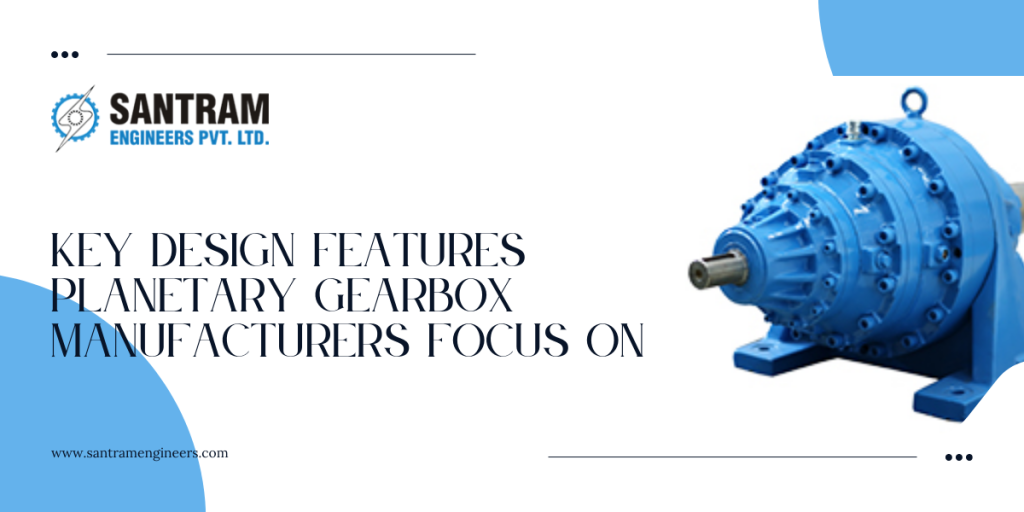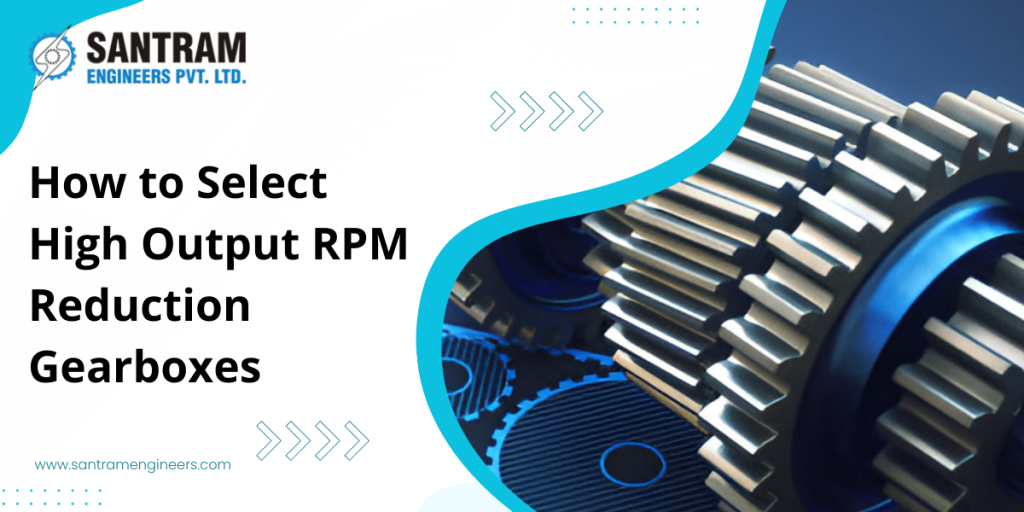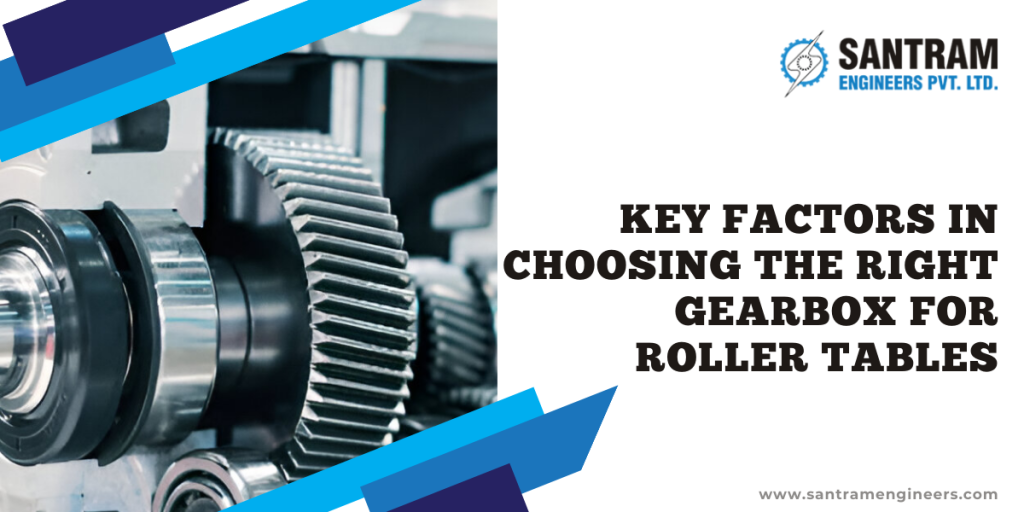In the fast-evolving food processing industry, achieving consistent product quality, maintaining high productivity, and adhering to strict hygiene standards are non-negotiable. At the heart of many efficient food manufacturing setups lies a reliable industrial gearbox system. Gearboxes regulate torque and speed and also ensure precision in operations ranging from mixing ingredients to packaging finished products.
Santram Engineers, a leading supplier of Premium Altra gearboxes and industrial drive solutions in India, understands the unique challenges of the food industry. With decades of experience and a robust portfolio of inline, parallel shaft, and bevel helical geared motors, we have been helping food businesses modernise their production lines with tailored solutions.
This blog explores how reduction gearboxes and other industrial gearbox types like helical and planetary gearboxes are transforming food processing environments — delivering enhanced control, hygiene compliance, and long-term operational savings.
Reduction Gearboxes Overview
What is a Reduction Gearbox?
A reduction gearbox is a mechanical device that reduces the speed of an input shaft while increasing torque. This conversion is crucial in applications where high torque is needed at a controlled or lower speed. It is common in food processing operations where gentle, accurate movements are essential to avoid damaging sensitive materials or compromising product consistency.
How it Works in Food Processing Machinery
In a typical food processing line, motors generate high-speed rotation, which must be slowed down to a precise operating speed for equipment such as mixers, conveyors, or bottling units. A reduction gearbox does this by using gear sets of different sizes — the motor drives a small gear, which turns a larger gear connected to the output shaft. This gear ratio ensures the machine works at an optimal speed with maximised torque.
This mechanism is vital for equipment such as dough kneaders, where over-speeding can impact the texture of the dough, or in bottling lines, where precision and timing are critical to avoid spillage and wastage.
Common Types Used in the Food Industry
Food processing demands gearbox designs that meet both performance and sanitation requirements. Some of the most used gearbox types in the industry include:
- Helical Gearbox: Known for smooth and quiet operation, helical gearboxes are ideal for high-load and continuous-duty applications in food manufacturing. They offer excellent torque transmission and energy efficiency.
- Planetary Gearbox: Compact yet powerful, planetary gearboxes offer high torque density and are often used in applications that require compactness without sacrificing performance, such as mixers or rotary fillers.
- Bevel Helical Gearbox: These gearboxes are used when the direction of a shaft’s rotation needs to be changed. Their high efficiency and reliability make them ideal for conveying systems or heavy-duty processing equipment.
Santram Engineers provides a wide range of these gearbox types, including smaller range inline, parallel shaft, and bevel helical geared motors—each carefully selected and installed to suit the distinct needs of food processing lines.
Key Benefits of Reduction Gearboxes in Food Processing
1. Enhanced Efficiency and Productivity
Reduction gearboxes allow food processors to fine-tune the speed and torque of machines according to specific tasks. Whether it’s precision dosing in bottling machines or uniform kneading in dough mixers, the result is improved process efficiency and reduced error rates. This ultimately leads to higher throughput and better product consistency.
2. Improved Torque Control and Speed Regulation
One of the primary reasons why food industry operators prefer industrial gearboxes is the control they offer. Applications like blending sauces or operating conveyors require exact torque settings. Reduction gearboxes help maintain these settings consistently across long production runs, eliminating the risk of over-processing or mechanical failures.
3. Energy Savings and Cost Efficiency
By optimising motor output and reducing speed without compromising power, reduction gearboxes lower energy consumption across equipment. Premium Altra gearboxes are engineered for high efficiency and minimal power losses, helping companies reduce their energy bills and carbon footprint.
4. Durable and Low-Maintenance Operation
Food-grade gearboxes must operate under conditions like washdowns, exposure to chemicals, and temperature variations. Reliable suppliers such as Santram Engineers offer robust gear solutions with corrosion-resistant coatings and IP-rated enclosures. Premium gearboxes also feature sealed bearings and food-safe lubricants, reducing maintenance needs and downtime.
5. Compliance with Hygiene and Safety Standards
Gearboxes used in the food industry must comply with hygiene regulations such as FDA or HACCP. Gearboxes with smooth surfaces, stainless steel bodies, and minimal crevices, ensure that bacteria and residue do not accumulate. This helps customers meet sanitation standards and maintain food safety.
Best Practices for Selecting the Right Reduction Gearbox
Choosing the right reduction gearbox for food processing applications involves more than just matching speed and torque. It’s about ensuring long-term reliability, hygienic operation, and seamless integration into existing systems. Here are the best practices to follow when selecting gearboxes for your food processing line.
1. Assess Load and Speed Requirements
Start by analysing the torque and speed demands of each machine. A mixer may require high torque at lower speeds, while a conveyor might need moderate torque with consistent speed. An industrial gearbox must be matched precisely to the motor’s performance and the machine’s operational load. Suppliers can help customers conduct accurate load assessments and provide gearboxes like planetary gearboxes or helical gearboxes tailored to each application.
For compact spaces or high-load, low-speed tasks, Premium Altra gearboxes with inline or parallel shaft configurations are ideal, ensuring efficient torque transmission and durability under continuous operation.
2. Material and Sealing Considerations for Hygienic Operations
In the food industry, hygiene is paramount. Gearboxes must be made from materials that resist corrosion, frequent washdowns, and exposure to food products or chemicals. Stainless steel housings, sealed enclosures, and food-grade lubricants are essential.
Gearboxes from the smaller range of inline, parallel shaft, and bevel helical geared motors, are built with sanitation-friendly designs. They feature smooth surfaces, non-toxic seals, and ingress protection (IP) ratings that prevent contamination and ease cleaning.
3. Compatibility with Existing Systems
Installing a new gearbox should integrate smoothly with existing automation and mechanical systems. Key factors to consider include shaft alignment, mounting styles, and available space. Ensuring compatibility with current motor types, machine configurations, and control setups helps avoid operational disruptions and simplifies installation.
4. Choose Certified and Food-Grade Gearbox Options
Gearboxes used in food production must comply with industry regulations such as FDA or FSSAI standards. Selecting gearboxes with food-grade certification ensures safe operation and simplifies audits or quality checks. Altra gearboxes meet international safety and sanitation standards, making them a trusted choice for critical food processing environments.
Maintenance Tips to Maximise Gearbox Performance
Even the best industrial gearboxes require regular care to deliver optimal performance and a long service life. Implementing proactive maintenance strategies can prevent unexpected breakdowns and costly downtime.
1. Regular Inspection and Lubrication
Gearboxes should be inspected routinely for signs of wear, lubricant leaks, or overheating. Lubrication is particularly vital — using the correct food-grade lubricant ensures smooth gear meshing and protects against corrosion.
Gearboxes with factory-filled lubricants are safe for food environments. In addition, dealers provide guidance on re-lubrication intervals and specifications based on operational load.
2. Monitoring for Wear, Noise, and Vibration
Unusual noises or vibrations often indicate internal wear or misalignment. These issues, if ignored, can lead to serious gearbox failure. Monitoring tools or sensors can detect early signs of trouble, allowing for timely intervention. Santram Engineers recommends vibration monitoring for critical gearboxes and provides training for maintenance teams to interpret warning signals.
3. Scheduled Servicing and Parts Replacement
Creating a preventive maintenance schedule is essential for extending gearbox life and minimising unexpected downtime. Replace seals, bearings, and gears as per the manufacturer’s guidelines. Using gearboxes that come with readily available replacement parts and clear technical documentation can simplify maintenance and ensure continued performance. Scheduled inspections, diagnostics, and timely part replacements also contribute to long-term operational efficiency and compliance in food processing environments.
Why Partner with Santram Engineers
As a trusted industrial gearbox dealer and supplier in India, Santram Engineers brings unmatched technical expertise, premium product offerings, and personalised support to the food processing industry.
- Trusted Supplier of Industrial Gearboxes: With decades of experience, Santram Engineers is known for delivering reliable and high-performance gearbox solutions, including the full range of Premium Altra gearboxes.
- Wide Range of Reduction Gearboxes: From inline and parallel shaft geared motors to bevel helical and planetary gearboxes, Santram Engineers offers configurations that meet the diverse operational and hygienic demands of food processing plants.
- Technical Support and After-Sales Service: The company backs every gearbox with end-to-end support—from selection and customisation to installation guidance and after-sales service—ensuring smooth and hassle-free operations.
Looking to upgrade your food processing systems with precision gearboxes? Contact us at +91 96247 39393 or email us at sales@santramengineers.com for expert consultation and access to the finest industrial gearbox solutions in India.

